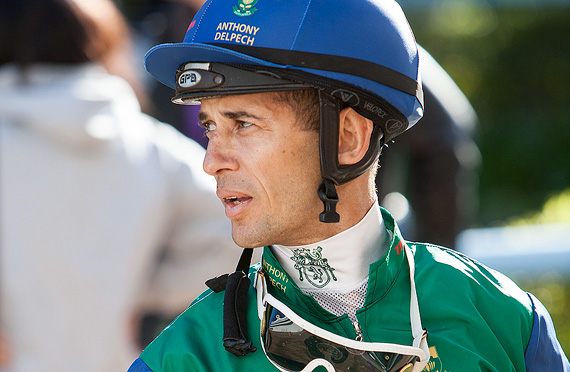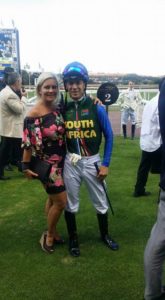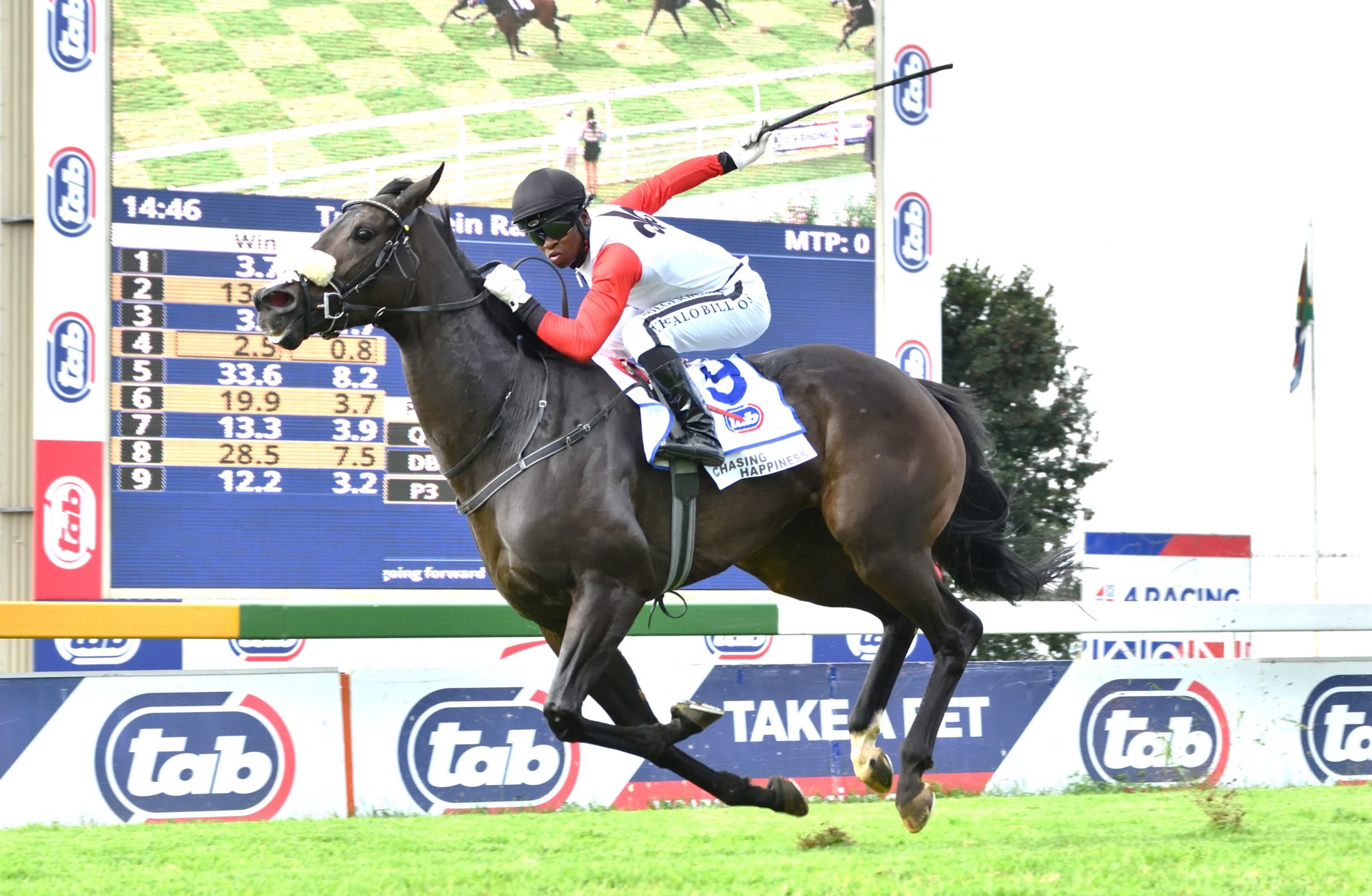On Saturday, 7 April 2018, during the running of the Gr1 SA Classic at Turffontein, Majestic Mambo stumbled, dislodging SA Champion Jockey, Anthony Delpech. While the rest of the field – including the on-course ambulance – continued across the finish line, Anthony was left lying at the 350m mark. While time stands still in situations like that and everything feels exaggerated, it would be not be unfair to say that too much time elapsed before Anthony was attended to.
From the track, the first responders transferred him into the on course ambulance, which drove him to the track’s first aid facility. There, Anthony was seen by the Chief Medical Officer and despite complaining of pain in his hands and feet, was deemed to have concussion. He was transferred into another ambulance and transported by road to Milpark Hospital’s casualty department.
His wife Candice, who unusually was watching from home in Durban, immediately left home and was making her way to the airport to catch a flight to Joburg. While driving to the airport, she was having to field calls, trying to relay Anthony’s Medical Aid details in order to get him admitted as somehow, these did not travel with him.
Sequence of events
By the time Candice arrived at the hospital at 8pm on Saturday evening, the hospital was ready to discharge Anthony and send him home after a CT scan had picked up nothing out of the ordinary. Tex Lerena was present and insisted that the correct protocol for a head injury was overnight admission for observation. Luckily they listened and at 10pm Anthony was re-admitted into a general ward, with Candice in a chair by his side.
After a difficult night, Anthony was next seen by a doctor at 6am on Sunday morning and an MRI scheduled for lunchtime. Still complaining of pain in his hands and feet as well as having increasing difficulty breathing, it was not until 9pm on Sunday night that Anthony finally had his vital signs checked, at which point it was discovered that his oxygen saturation levels were at 52 – dangerously below the accepted norm of 95-100.
On Monday, Anthony was seen by a neurosurgeon who advised that the MRI results revealed a herniated disc in his neck which was exerting pressure on his spinal cord. Surgery was scheduled for the following day. The surgical team talked Anthony and Candice through the proposed operation on Tuesday morning, explaining that it entailed the removal of the herniated disc material, a bone graft to be inserted into the disc space, followed by a cervical fusion which entails screwing the upper and lower vertebrae to a metal plate to stabilise the joint. When Anthony nodded his understanding, the doctor exclaimed, “Don’t move your head, you can sever your spinal cord.” “I was horrified,” says Candice.
Speaking out
Although the operation was successfully performed on Tuesday, 10 April 2018, as with any injury and major surgery, it is going to be a long road to recovery. However, things could have been very different.
Candice has courageously agreed to talk to me about the accident. Given the extremely private nature of the Delpech family, it’s a responsibility I take seriously. And I think everyone else should too.
While these are difficult details for the family to share, Candice says enough is enough. “In my 26 years with Anthony, I’ve never once raised my voice or stated any opinion about racing or how Anthony has been treated, but I know if we don’t stand up together now, nothing is going to be done.”
“Anthony has devoted his life to racing. He understands the risks and accepts there are injuries associated with the job, but it’s his passion and if there are falls, the support should be there.”
First response
“Anthony was on the ground for far too long before the first responders reached him. He was incorrectly diagnosed on course as having a concussion and with a serious spinal injury, was transferred to hospital by road. If that ambulance had jammed on its breaks or hit a bump, he could have severed his spine. Lastly, he was incorrectly admitted to the casualty department, which delayed him getting the correct care he so badly needed.”
“It comes down to the quality of the first response and the chain of communication. Had there been a properly experienced trauma medic on site who could have correctly assessed the seriousness of the situation, Anthony would have been airlifted to hospital. The handover to casualty would have been strong and Anthony would have been admitted to the ICU immediately. Instead, the on duty casualty doctor wanted to discharge him thanks to insufficient information from the two previous services. Anthony is lucky to be alive and not a quadriplegic.”
The Hard Truth
In response to the statement issued by Phumelela regarding race day safety measures, Candice says there are no ‘misconceptions among the public.’ “We have experienced the total opposite of this response. This is not the first time this has happened and it’s not isolated to a single centre. In December 2015, Anthony suffered a bad fall when his horse flipped over in the starting stalls at Kenilworth. The on course medic pronounced him fit to go home. Pippa Mickleburgh drove him to his hotel, where he was in so much pain, he hardly slept. The next morning Larry Wainstein helped him get a set of crutches. It was 22 December so he couldn’t get a direct flight home, and had to fly from Cape Town to Johannesburg and then to Durban. Three airports, three wheelchairs and 24 hours later, he drove himself to Hillcrest hospital for an X-ray to find out he had a broken leg.”
“In December 2016, Anthony fell at Turffontein and again, was discharged by the on course doctor. He drove to the airport, caught a plane back to Durban and then drove himself to the hospital where he was diagnosed with a broken collar bone that had to have a plate put in two days later. In 2017, he fell at Greyville. The medic put the stethoscope over the body protector and wondered why he couldn’t hear anything. And then he was sent home with a concussion,” continues Candice.
During the international meeting a few years ago, S’manga Khumalo was similarly left on the track for far too long before being attended to. Then there was the debacle over the Jarred Samuel incident at Greyville. We’ve just seen Gavin Lerena seriously injured in a fall at Turffontein and while that was handled effectively, mainly thanks to the intervention of Gavin’s family, it is clear that Anthony’s case was not.
Candice says, “I am angry, disappointed and feel let down by our racing authorities at how our jockeys are treated. If we can produce world class riders that hold their own all over the world, surely they deserve world class support?”
Time of the essence
South Africa are world leaders and out of the box thinkers in many fields – there is nothing to stop us doing the same here. While nothing can undo the events of 7 April, it is entirely possible to improve things going forward.
It is accepted that the time it takes an injured person to receive appropriate action after an accident has a direct influence on not only their immediate survival, but also on their recovery time. The first three minutes are critical and the first hour post trauma is commonly referred to as the ‘golden hour’ as it is a vital treatment window that can dictate whether a patient lives or dies – and if they do live, what that their quality of life will be.
While we cannot control accidents, we can control how they are dealt with. There should be clear, accepted and above all, standardised emergency protocols.
The first response should be immediate. There is no point in having an ambulance follow riders and having support staff on site if they cannot get to a stricken jockey fast enough. Every moment wasted is a potential life-saving opportunity lost.
On-site support needs to be of the highest standard and the chain of communication has to be effective to ensure appropriate treatment at the hospital.
Emergency details should be on hand at all times. A severely injured or unconscious jockey may not be able to communicate their emergency contacts or details.
There should be a line of communication to next of kin and emergency contacts, as well as relevant media to relieve strain on family members.
Nice to Haves
Candice recalls Anthony being injured during his stint in Hong Kong where the HKJC sent a car to drive her to the hospital and back every day and had a member of staff stationed outside Anthony’s hospital room until he was discharged, to ensure he was well taken care of.
While it will be argued that we are not Hong Kong, there is plenty that can be done to make a difficult process easier both for our jockeys as well as for their families.
Candice had to secure her own transfer from Durban to Joburg, she has had to hire a car, book into a hotel, buy meals and spend a fortune on airtime communicating with all Anthony’s family, friends and well wishers. While these are necessary consequences, not everyone has the same resources. Would it not make life a lot easier and less stressful having a specific point of contact and some kind of budget / contingency planning available for incidents like these?
While there have been a number of people who have been an invaluable support, Candice says it’s been the little things such as the Lerena family bringing her a curry for dinner one night, or a kind nurse who drove her to a local Pick n Pay to buy toiletries and essentials that have meant a lot. “They’re small things, which aren’t really small things, you know?” she says quietly. I blink hard and nod silently over the lump in my throat.
When you know better, do better
Candice confirms that Anthony is still in hospital recovering, but says he is getting stronger and better every day and thanks everyone for their on-going love and support. But now that he is out of immediate danger, she is focussing on the bigger picture. “This is not just about us, but now that it has happened, it’s our responsibility to see that something gets done. We are lucky that Anthony is a senior jockey and we have the resources and infrastructure to cope with something like this, but what about the rest? The younger guys who are still getting established and all the hard-working guys who are a little more under the radar? If this is how Anthony, our National Champion Jockey, is treated, what chance does anyone else have? We have to realise, we are playing with people’s lives here. Things have to be sorted out.”
Being proactive in improving the status quo could quite literally save lives. It cannot wait. Horse racing is an extraordinary sport with extraordinary risks. We cannot have ordinary support services.










